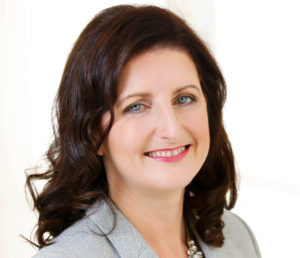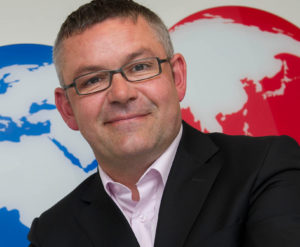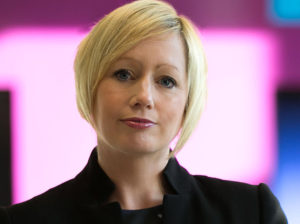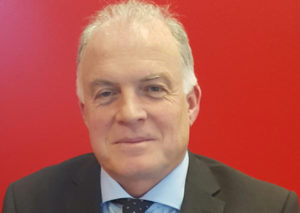Now that 2016 has ended, it’s time to look forward to 2017. But what is the new year likely to bring for the IT industry and, more specifically, the channel? Billy MacInnes asked the experts.
Edel Creely, group managing director, Trilogy Technologies
 Cyber security threats will continue to have the greatest impact on customers throughout 2017 and beyond, Creely predicts. Dubbing 2016 ‘The Year of Ransomware’, she says that securing and protecting data and ensuring IT infrastructure is not vulnerable “are key areas that will be top of mind for organisations in 2017”.
Cyber security threats will continue to have the greatest impact on customers throughout 2017 and beyond, Creely predicts. Dubbing 2016 ‘The Year of Ransomware’, she says that securing and protecting data and ensuring IT infrastructure is not vulnerable “are key areas that will be top of mind for organisations in 2017”.
Creely expects more demand for managed services, managed cloud backup and disaster recovery services, particularly managed security, to combat cyber security threats. GDPR, due to take effect in May 2018, will drive organisations to become compliant to avoid fines of up to €20 million or law suits from individuals who believe their data privacy has been affected.
Growing demand for mobility and flexibility will also increase interest in the move to Microsoft Office 365. “As we see the balance of IT infrastructure move from on-premise to off-premise,” Creely remarks, “companies in the channel that are not focused on ITIL-based proactive managed services and haven’t developed their value proposition in the area of cloud will struggle to compete in this increasingly complex market.”
James Finglas, managing director, MJ Flood Technology
 “The future is bright,” Finglas states. One of MJ Flood’s biggest growth areas is in retail which he describes as “a very interesting journey for us”. The company is offering retailers the opportunity to collect data on customers that will help to deliver the right messages to them at the right time with the aid of beacon technology, facial recognition and emotion recognition. “There’s huge growth within that area,” Finglas observes, “and we’ve been winning some very interesting deals here and into Europe for multiple chains. It’s one of our big bets for 2017.”
“The future is bright,” Finglas states. One of MJ Flood’s biggest growth areas is in retail which he describes as “a very interesting journey for us”. The company is offering retailers the opportunity to collect data on customers that will help to deliver the right messages to them at the right time with the aid of beacon technology, facial recognition and emotion recognition. “There’s huge growth within that area,” Finglas observes, “and we’ve been winning some very interesting deals here and into Europe for multiple chains. It’s one of our big bets for 2017.”
There is a lot of growth in cloud, especially around the Microsoft stack, in areas such as collaboration, Office 365 and Skye for Business. There’s also growth in managed services around all the Microsoft solutions and “mobility plays into that as well”.
He predicts Brexit will bring opportunities for Ireland and the Irish economy as financial and insurance institutions seek to relocate from London to alternative locations within the EU. “Ireland is very well positioned as an English-speaking country next door to the UK with an excellent education system. There will be opportunity for the Irish economy and state agencies are watching the situation very closely,” he observes.
Finglas admits the fall in the value of sterling has had an effect on MJ Flood’s Office 365 sales into the UK. “We’ve been doing a lot of Office 365 into the UK market and the exchange effects have had quite an impact,” he says. “We’re reviewing whether it’s sustainable to continue at the moment. It was always tight but the FX effect has pushed that over the edge.” The Irish Office 365 business is unaffected. Finglas adds that “it has become a lot more expensive” for Irish companies exporting services into the UK.
While he believes 2017 looks good, there are a number of limiting factors that could affect it. “Costs, in terms of people costs, have gone up and the skills shortage is coming back into play,” he reveals. “It’s difficult to get good technical people and to retain them.”
In passing, he admits to being “genuinely surprised” that there hasn’t been further consolidation in the market. “I anticipated it would happen this year but it hasn’t actually materialised.”
Aisling Curtis, SMSP director, Microsoft
 “2017 will be the year when organisations really start to embrace digital transformation,” says Curtis. “Digital transformation is one of the biggest opportunities for businesses in 2017.” She cites Microsoft research in the UK that found most business leaders felt their existing models would disappear in the next few years.
“2017 will be the year when organisations really start to embrace digital transformation,” says Curtis. “Digital transformation is one of the biggest opportunities for businesses in 2017.” She cites Microsoft research in the UK that found most business leaders felt their existing models would disappear in the next few years.
“For Microsoft, one of our key aims for 2017 is to showcase to our customers that digital transformation is not just about the technology alone – it is a reshaping of business strategy to reflect rapidly changing industries. It is about fundamental change to business models and processes, which Microsoft is almost uniquely placed to help organisations maximise on their evolution.”
She adds that organisations need to “understand what digital transformation is and, more importantly, how they can start their transformation, rather than waiting to react to the disruption. I believe that our biggest opportunity in 2017 will be enabling our customers and partners to manage their pace of digital transformation. We are reaching a crucial point in the digital transformation journey, where Irish businesses can embrace and evolve or slowly wither on the vine”.
Michael Jackson, general manager, Ireland, Tech Data
 “As ever, there will be opportunities aplenty for resellers in 2017,” Jackson says. Cloud is still growing and Tech Data is very closely involved in getting Microsoft partners on-board with the CSP programme. “The whole digital transformation trend and the further adoption of software-defined data centre and network technologies and hybrid infrastructures, will also be a big area of focus,” he adds. In addition, opportunities around security, information management and unified communications should develop strongly next year.
“As ever, there will be opportunities aplenty for resellers in 2017,” Jackson says. Cloud is still growing and Tech Data is very closely involved in getting Microsoft partners on-board with the CSP programme. “The whole digital transformation trend and the further adoption of software-defined data centre and network technologies and hybrid infrastructures, will also be a big area of focus,” he adds. In addition, opportunities around security, information management and unified communications should develop strongly next year.
Like Creely, he believes the issue of GDPR is “becoming much more prevalent and all organisations will be looking at how they are going to meet its requirements by May 2018”.
As for challenges, he says they’re “a little harder to predict. There is potential for change everywhere but we are used to that in the IT industry. We’ll need to stay agile, alert and ready to adapt our approach to meet partner and customer needs”.
Michael Conway, director, Renaissance
 At the beginning of 2016, Conway predicted that ‘man in the van’ operations would be replaced or superseded by remote partners. He says nothing over the last 12 months has made him change his mind. “We’re seeing with the man in the van, if he exists, that he’s going nowhere. That’s the reality of it. He won’t thrive and he won’t develop.”
At the beginning of 2016, Conway predicted that ‘man in the van’ operations would be replaced or superseded by remote partners. He says nothing over the last 12 months has made him change his mind. “We’re seeing with the man in the van, if he exists, that he’s going nowhere. That’s the reality of it. He won’t thrive and he won’t develop.”
But Conway believes that while the ability to provide remote services and monitoring makes the man in the van an increasing irrelevance, it also makes it easier for small operations with as little as three employees (two techies and a sales person) to survive and thrive. “You don’t have to have a big amount of scale,” he argues, “you can offer an MSP type solution pretty easily, even with your own brand, at a small level. A three man band is in a position to grow and develop and be a bit more sophisticated to provide the level and breadth of services customers need to grow.”
While customers may be more tech savvy nowadays, they’re also dealing with “a more complex situation. They want to pay someone to do it and they want it all done”.
Small partner organisations “can create a 24/7 full service provision to deliver to clients pretty easily. Your scale is not limited by your size, your scale is limited by your ambition. Real economy of scale is not expensive to get into, especially when you’re doing a lot of stuff remotely so you don’t have transport and time wasted on travel. It’s all about maximising your utilisation of resources”.
At the security level, Renaissance is seeing partners outsourcing elements on behalf of their customers as they move to more sophisticated security services. “The partner’s role becomes almost like an IT manager for the customer,” Conway notes. “It’s almost like having a shared IT manager and resource. The customer’s getting the benefit of that and everyone’s a winner.”
He believes 2017 will be a “decent enough” year. While Brexit will bring uncertainty, particularly for businesses with international operations, Conway also thinks there “are massive opportunities and potential upsides”.








Subscribers 0
Fans 0
Followers 0
Followers